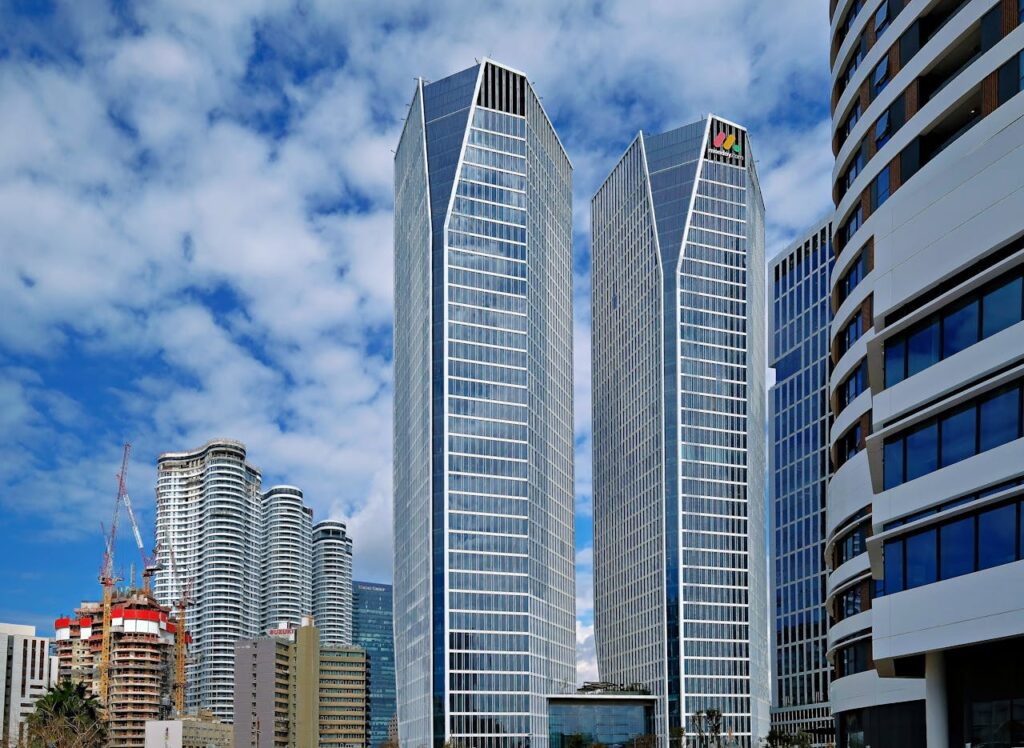In today’s interconnected world, technology drives progress, shapes economies, and influences cultures. At the forefront of this digital revolution are global tech hubs – cities that have become epicenters of innovation, attracting talent, investment, and cutting-edge companies from around the world. Let’s explore these vibrant ecosystems that are shaping our technological future.
The Rise of Tech Hubs

Tech hubs have been around for a while. Silicon Valley, the first big tech hub, started in the 1960s and 1970s. It became famous for creating new computer parts and technologies. But in the last 20 to 30 years, tech hubs have started popping up all over the world. Each of these new hubs is different and special in its own way. They focus on various types of technology and have their own unique cultures.
These hubs didn’t emerge by accident. They’re the result of a perfect storm of factors: access to capital, proximity to top universities, supportive government policies, and a culture that embraces innovation and risk-taking. As these elements coalesce, they create a magnetic effect, drawing in more talent and resources, and fueling further growth.
1. Silicon Valley: The Original Tech Mecca


No discussion of tech hubs can begin without mentioning Silicon Valley. Located in the San Francisco Bay Area, Silicon Valley has been the world’s preeminent tech hub for decades. It’s home to tech giants like Apple, Google, and Facebook, as well as countless startups hoping to become the next big thing.
What makes Silicon Valley unique is its unparalleled ecosystem. Here, you’ll find the world’s largest concentration of venture capital firms, a network of experienced mentors, and a culture that celebrates innovation and accepts failure as part of the journey. The region’s universities, including Stanford and UC Berkeley, provide a steady stream of talent and groundbreaking research.
However, Silicon Valley’s dominance hasn’t come without challenges. High living costs and increasing competition for talent have led some to question whether it can maintain its position at the top of the tech world.
2. New York: Silicon Alley’s Rise to Prominence
While Silicon Valley may be the original, New York City has established itself as a formidable tech hub in its own right. Nicknamed “Silicon Alley,” New York’s tech scene leverages the city’s strengths in finance, media, and advertising.

New York’s tech ecosystem is diverse, with strengths in fintech, adtech, and e-commerce. Companies like Etsy, MongoDB, and WeWork got their start here. The city’s vibrant culture, world-class universities, and access to capital make it an attractive destination for tech talent from around the world.
One of New York’s unique strengths is its ability to blend tech with other industries. Fashion tech, for instance, is a growing niche that combines the city’s fashion industry with cutting-edge technology.
3. London: Europe’s Tech Capital
Across the Atlantic, London has established itself as Europe’s leading tech hub. Despite concerns about Brexit, the city continues to attract tech talent and investment from around the world.
London’s strengths lie in fintech, AI, and cybersecurity. The city’s position as a global financial center has helped fuel its fintech boom, with companies like Revolut and Wise changing the face of banking and money transfers.
The UK government has played a crucial role in London’s tech success, offering tax incentives for startups and investing in tech education. Initiatives like Tech City UK have helped nurture the city’s startup ecosystem.
4. Tel Aviv: The Startup Nation’s Crown Jewel

Israel has earned the nickname “Startup Nation” for its outsized impact on the global tech scene, and Tel Aviv is at the heart of this innovation ecosystem. The city boasts the highest number of startups per capita in the world outside of Silicon Valley.
Tel Aviv’s tech scene is known for its focus on deep tech – advanced technologies like AI, cybersecurity, and autonomous vehicles. The city’s success is partly due to Israel’s mandatory military service, which provides young people with technical training and leadership skills.
The city’s laid-back beach culture, combined with its intense work ethic, creates a unique environment where innovation thrives. It’s not uncommon to see important business deals being made over hummus in a casual beachside café.
5. Beijing and Shenzhen: China’s Tech Powerhouses
China’s rapid technological advancement has given rise to two major tech hubs: Beijing and Shenzhen. Beijing, the capital, is home to tech giants like Baidu and Xiaomi, as well as top universities that produce a steady stream of tech talent.
Shenzhen, once a small fishing village, has transformed into a global hardware hub. Known as China’s “Silicon Valley of Hardware,” Shenzhen is where companies like Huawei and Tencent call home. The city’s strength lies in its manufacturing ecosystem, which allows for rapid prototyping and production of new tech products.
Both cities benefit from strong government support and a huge domestic market, which allows Chinese tech companies to scale rapidly.
6. Bangalore: India’s Silicon Valley
In India, Bangalore (also known as Bengaluru) has emerged as the country’s leading tech hub. Often called the “Silicon Valley of India,” Bangalore is home to a thriving IT services industry and a growing startup ecosystem.
The city’s success is built on a strong foundation of technical education, with numerous engineering colleges producing skilled graduates. Multinationals like IBM and Microsoft have large offices here, while homegrown companies like Flipkart and InMobi have become global players.
Bangalore’s tech scene is diverse, with strengths in areas like e-commerce, healthtech, and edtech. The city’s relatively low cost of living (compared to Western tech hubs) and its young, educated workforce make it an attractive destination for startups and established tech companies alike.
Key Factors That Make a Successful Tech Hub
While each tech hub has its unique characteristics, there are several common factors that contribute to their success:
- Access to talent: Proximity to top universities and a large pool of skilled workers
- Availability of funding: Presence of venture capital firms and angel investors
- Supportive government policies: Tax incentives, grants, and pro-business regulations
- Strong infrastructure: High-speed internet, coworking spaces, and transportation networks
- Culture of innovation: An environment that encourages risk-taking and celebrates entrepreneurship
- Quality of life: Attractive living conditions to retain and attract top talent
These factors work together to create an ecosystem where innovation can thrive and startups can grow into global tech giants.
The Future of Global Tech Hubs

As technology continues to evolve, so too will the landscape of global tech hubs. Emerging technologies like AI, blockchain, and quantum computing may give rise to new specialized hubs. Meanwhile, the COVID-19 pandemic has accelerated the trend towards remote work, potentially decentralizing tech talent away from traditional hubs.
However, the fundamental factors that make tech hubs successful – access to talent, capital, and a supportive ecosystem – are likely to remain crucial. Cities that can cultivate these elements while addressing challenges like affordability and work-life balance will be well-positioned to thrive in the future tech landscape.
Conclusion
From the sun-soaked streets of Silicon Valley to the bustling markets of Bangalore, global tech hubs are the beating hearts of our digital world. Each hub brings its unique strengths and cultural flavors to the table, contributing to a rich tapestry of global innovation.
As we look to the future, it’s clear that these tech hubs will play a crucial role in shaping our world. They’re not just places where new technologies are born; they’re incubators for ideas that have the power to transform societies and economies. Whether you’re a tech enthusiast, an aspiring entrepreneur, or simply curious about the forces shaping our world, keeping an eye on these global tech hubs is sure to be a fascinating journey. The future is being written in lines of code, and these are the cities where much of that code is being crafted.
